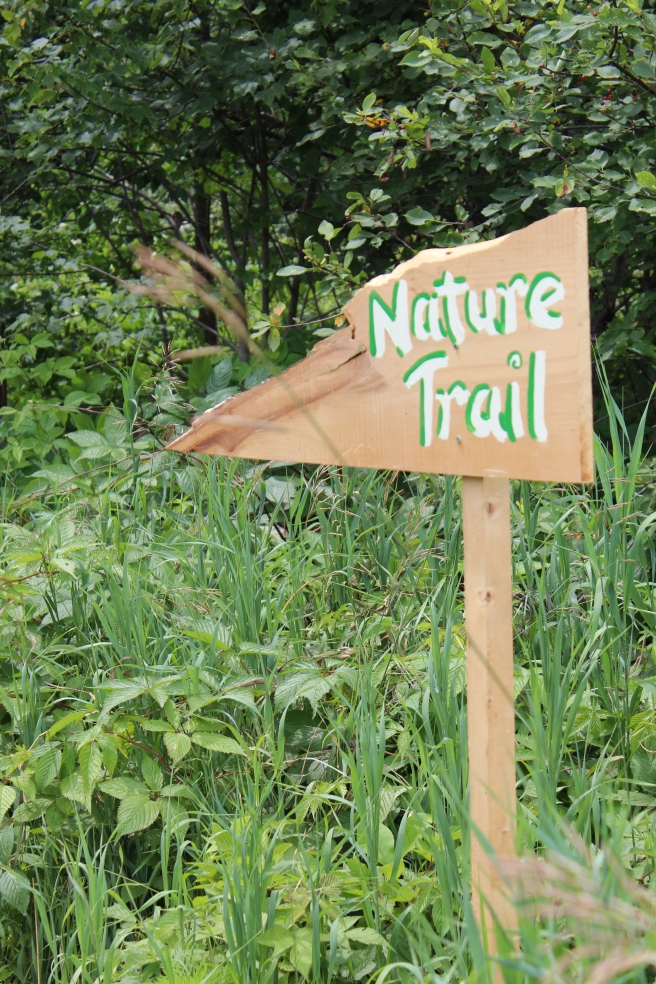
Guest Blogger: Breanne Mathers from Fiddlehead Care Farm
As an inpatient CCLS focused on Brain Injury and Complex Continuing Care, I worked for 9 years at Holland Bloorview Kids Rehabilitation Hospital but, in 2015, I found a new home for my child life skills outside the hospital walls. My business partner, Stephanie Deaken, a registered social worker, and I opened Fiddlehead Care Farm (FCF) in Ontario, Canada. FCF is a 50 acre fully accessible organic farm which provides innovative therapy for children, youth, and young adults with special needs to help them reach their potential and become their best selves. The programs are targeted at improving children’s physical, spiritual, psychosocial and mental health.
FCF’s mission is to give kids and their families the opportunity to learn, experience and grow without boundaries through animal-assisted therapy and nature-based education, rehabilitation and recreation. We aim to harness the healing and calming properties of nature to improve quality of life and restore the mind, body and spirit.
How did the idea for FCF get started?
The foundations for Fiddlehead Care Farm were laid many years ago during a number of talks over dinner about our long term dreams. Stephanie and I were co-workers at Holland Bloorview but also great friends who shared a love of the outdoors and saw first hand the power of nature and animals for healing, calming and to enhance coping. We heard from kids and families about their struggles returning to the community after an inpatient stay. There was a lack of quality and variety in community programming, and even when they found the right fit, accessibility and inclusion based on their needs was often an issue.
Pair all of this with the growing body of evidence around care farming, the importance of nature in development and healing, and the beginnings of social prescriptions for time in nature by doctors in other areas of the world, and we were motivated to create an accessible therapeutic farm for kids and families.
What child life skills came in handy when starting up this kind of endeavor?
I have to admit, moving out of the hospital and into a community setting was a steep learning curve but many of core skills from my hospital experience were readily transferable and applicable to the farm environment. For me, the most useful skills were a passion and belief in the power of Child Life interventions, the ability to adapt and be flexible and a laser focus on client and family centred care.
During the planning of the property and the programs, my previous experience in creating and maintaining safe, accessible, therapeutic and child & family friendly environments has been of the utmost importance. The ability to run individual and group programs which meet the goals and needs of each participant is paramount to our success as well as my continued focus on collaborating with all members of the client’s team and community. I believe the key to my success thus far is the solid foundation I built in the nine years I spent in the formal setting of a hospital, honing my skills and building my repertoire and confidence in preparation for community work.
Many of my current client goals are very similar to ones I set for children in the hospital setting but the way I target and achieve those goals in the FCF setting may be somewhat different based on the unique setting and offerings of our farm. Most client goals relate to therapeutic play opportunities to decrease distress and increase coping, non-pharmacological pain, stress and anxiety management, teaching and practicing life and independence skills, diagnostic teaching and/or facilitation of multi-sensory experiences. No matter the reason they come to FCF, it is amazing to see the clients benefit from the play, animal, and nature based modalities we offer.
What obstacles did you overcome to building the business?
One of the first hurdles was finding the perfect property to support our vision of accessibility, freedom and therapeutic value. This process took almost a year of research, showings, budgeting and dreaming before Stephanie and her husband, Darryl purchased the perfect property which continues to impress, surprise, and charm us every day.
The second barrier we had to overcome was our lack of hands on farming experience. I have been digging in dirt for worms and caring for plants and vegetables for as long as I remember but Fiddlehead Care Farm takes gardening and farming to a new level which was far outside my comfort zone. Luckily for me, Darryl, grew up on a local dairy farm and therefore he is the brains and brawn behind the large scale farming and maintenance of the farm. Being a mostly outdoor facility, we have had to learn to manage and problem solve unpredictable weather and to modify programming and scheduling for the changing seasons.
Being the first care farm in Canada, it was vital we reach out and build a network with people in other countries for support, mentoring, research, etc. (http://www.carefarminguk.org/ and http://www.childrenandnature.org/) We quickly realized the importance of education and personal visits with community agencies, referral partners and individual families to educate not only about Child Life and FCF’s programs but also about care farming in general. We are fee-for-service so funding consistently is an issue however, through partnerships with community organizations, we have been successful in assisting families to obtain funding through government funding and third party insurance. We are currently undertaking the process to incorporate as a not-for-profit in the hopes we can further relieve the financial burden.
Another challenge has been perfecting the right verbiage when marketing our programs. We’ve found that “special needs” is a scary and negative word. We have encountered many children with mental health needs, learning disabilities or children on the Autism Spectrum, who have yet to be officially assessed or diagnosed, and/or whose parents do not categorize them as having any special needs. We are now more inclusive in our advertising, and we focus on the benefits of nature and animals for people of all ages and abilities. We adhere to the understanding that everyone has unique needs, everyone could benefit from the chance to get out in nature, and we all need some work on skills around dealing with big emotions, making friends and self esteem.
Why is nature so important for all children?
Exposure to and exploration in nature is important to every child’s development. Whether it is through free play and exploration or a more facilitated experience, this is where children learn, grow and practice skills and where they children can develop a special connection to their environment. They are experiencing a completely immersive sensory experience; seeing, hearing, smelling, tasting, touching, manipulating and exploring. Nature can also be the ultimate form of loose parts play with every leaf, branch, canopy, stump, animal or insect being available for their use and the only limitation is the far reaches of their imagination.
American Author and Journalist, Richard Louv (http://richardlouv.com/) coined the term “Nature Deficit Disorder” in 2005 to describe the wide range of behavioural, psychosocial and emotion effects on human beings, especially children, as a result of spending less time outdoors.
Persons with disabilities, especially kids, tend to be more isolated, and participate less in social and community activities or play outside and explore their world with their peers. Accessing nature and recreation in their community is often difficult. At FCF, we attempt to remove all boundaries, judgements and barriers to free participation for kids and their families, and provide an environment to allow kids to be kids no matter their abilities or needs.

Why are animals such a central part of your program?
Ask anyone who has pets at home, animals can be wonderful friends and healers and their presence can be a powerful and freeing experience. We work to take this benefit one step further to implement animal-assisted therapy (AAT) on the farm. AAT is a type of therapy that involves animals as a form of treatment and its goal is to improve a person’s physical, social, emotional, or cognitive functioning.
At FCF, we have cows, calves, chickens, a wonderful farm dog named Mocha and Luna, the therapy mini pig. The therapeutic values of animals are immense and the benefits can be seen in each and every session with the animals. Not only are these animals interesting and novel to many children but they are also supportive of improvements in every domain. Caring for animals is an important responsibility and the role of feeding, brushing, holding and other care of the animal give the child a special routine to follow or look forward to. These skills also have benefits in other areas such as fine motor skills, sequencing and social and life skills.
Providing a non-human buddy to relate to often elicits wonderful verbal and nonverbal communication where feelings can be shared. This is especially powerful when individuals are not very responsive to verbal communications or are coping with a variety of emotions or stressors. We have had many instances when children have talked to the animals and confided in them about feelings, events, worries and/or stressors that they have not told anyone else.
It is no surprise that these animals and children become fast friends and the animals provide companionship, unconditional love, and reduce loneliness. The non-judgemental nature of the animals means the child always feels accepted and they are in control of the situation and activities. Families and children report a sense of relaxation, joy and reduction of stress after spending time with the animals on site.

What are your plans for the future?
We have many plans for the future including expanding our forest walking trails, enhancing our sensory garden and building more indoor multi-use spaces. We are working on developing formal life skills programs and employment opportunities for young adults and will continue to partner with community agencies to co-create programs to fill community gaps.
Our other major goals are around education, so we hope to begin hosting educational workshops and retreats for families as well as professionals, and contribute to the growing body of research supporting the substantial benefits of Care Farming, the immense power of nature and animals, and the importance of nature in child development.

About the author
Breanne Mathers has a BA in Sociology and a Post-Graduate diploma in Therapeutic Recreation. She is dually qualified as a Certified Child Life Specialist and Therapeutic Recreation Specialist. Breanne has vast experience working with children and youth with traumatic and acquired brain injury and children with complex medical issues and mechanical ventilation. She has set herself apart as a leading expert and consultant on the use of Multi-Sensory Environments and Snoezelen with children with disabilities and continues to push forward her passion for the teaching and use of non-pharmacological pain management techniques.





Hope I can visit some day soon.
LikeLiked by 1 person
Reblogged this on Child Life Mommy and commented:
Check out the amazing work from child life specialist, Breanne Mathers as she provides services on a therapeutic farm.
LikeLiked by 1 person
Breanne and the team at Fiddlehead have opened the world to my autistic son. After attending for several years now, we see a more confident child who is willing to take on challenges independently. Thank you to Breanne and the whole team.
LikeLike